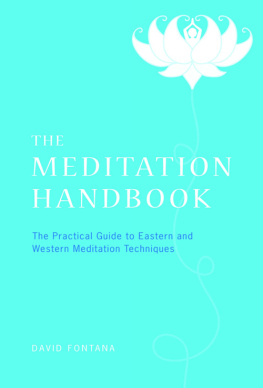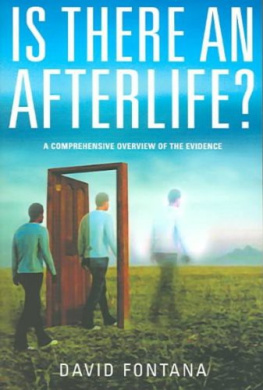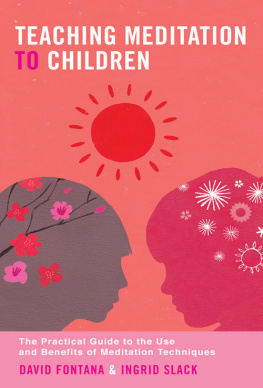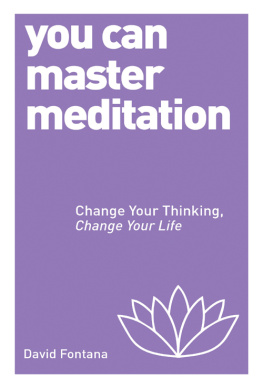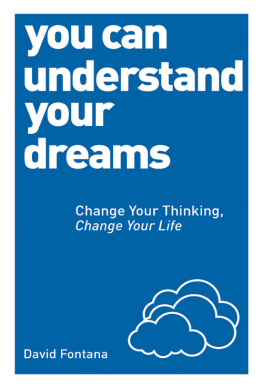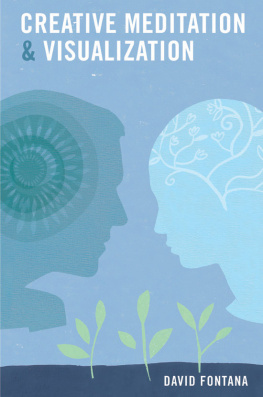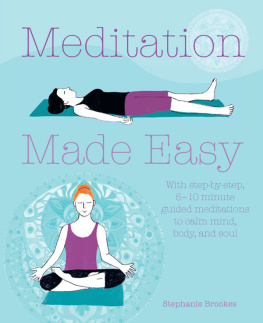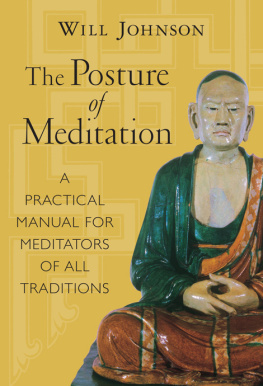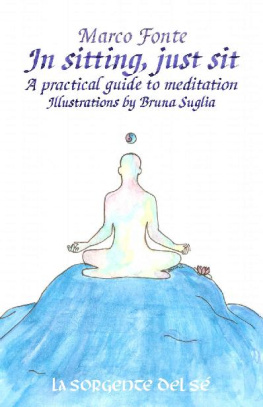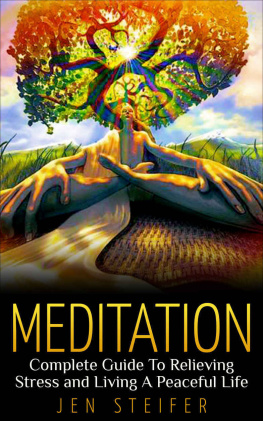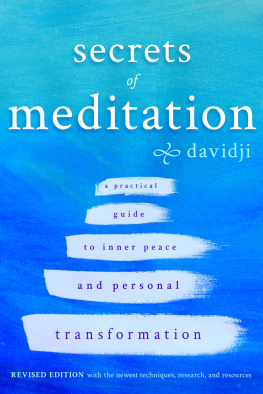
David Fontana has had a distinguished career in universities in Britain and Portugal, and is currently Visiting Professor in Transpersonal Psychology at Liverpool John Moores University. A Fellow of the British Psychological Society and a Chartered Psychologist and Chartered Counselling Psychologist, he has long specialised in the psychology of spirituality and in associated are as such as meditation and dream research. He is a former President of the Society for Psychical Research, and with two colleagues was responsible for founding the Transpersonal Psychology Section within the British Psychological Society, which has been instrumental in establishing the study of spirituality as a legitimate area in psychological research. He has written widely in all his major areas of interest, including Eastern and Western religions, and his many books, which have been translated into no fewer than 26 languages, include surveys of the evidence for life after death and for the nature of the afterlife.
A selection of books by David Fontana
The Secret Language of Symbols
The Secret Language of Dreams
The New Secret Language of Dreams
Meditating with Mandalas
Learn to Meditate
Learn Zen Meditation
Meditation Week by Week
Meditation Bliss
Teach Yourself to Dream
The Language of Dreams
Learn to Dream
Psychology, Religion and Spirituality
Is There an Afterlife?
Life Beyond Death
Teaching Meditation to Children (with Ingrid Slack)
THE
MEDITATION
HANDBOOK
The Practical Guide to Eastern and Western Meditation Techniques
David Fontana
Foreword by Professor Michael West

To the memory of Carl Jung, psychologist, meditator, mystic and explorer extraordinary of the human spirit
FOREWORD
T here is enormous turbulence on the surface of the earth. Yet at the same time most of us experience in our day-to-day relationships the closeness, warmth, trust, honesty and generosity, which is characteristic of individuals in their behaviour towards each other. It often seems as though collectively we are unable to manage the way we live, but at an individual level it is clear that there are good intentions and that there is great morality in human behaviour. One solution that people have adopted over the ages, in trying to manage the demands and challenges of living, is to turn to the world religions. But even here cynicism has grown about the extent to which they too have been responsible for increasing destruction, terror and war, rather than solving the problems which face us.
Meditation is a practice which, across traditions, is intended to still the turbulence of our outer and inner lives, and to create harmony between the individual and his or her social, spiritual and even metaphysical world. It is a practice, not necessarily based on belief, which ultimately may produce still completeness within us and on the surface of our lives. It is a practice which spans religions and secular traditions. It offers stillness, understanding, freedom and tranquillity.
David Fontanas book, simply titled The Meditation Handbook, is no small undertaking and its title perhaps belies its important aims. The book aims to provide an introductory guide to the place of meditation in all of the great and many of the lesser traditions of human society, through history, across nations and across philosophical traditions. It is, in that sense, a guide to the many alternative meditation practices which exist for attempting to cope with the turbulence which we have created in our individual lives and in our world.
But what is meditation? This simple question is very difficult to answer, simply because meditation spans so many traditions. Over the years I have read accounts of the meditative traditions in Hinduism, Buddhism, Sufism, Judaism, Christianity and in Shamanism. My experience has been that, after a little time of reading or study, my eyes glaze over as I find myself slipping beneath the waves of obfuscation that advanced scholars, either advertently or inadvertently, create for the swimmer in their rarely charted waters. Much of the writing about meditation in different traditions is so obscure for the naive reader that it becomes almost impossible to understand the nature of the practice, the purpose of meditation and how it relates to the broader spiritual context within which it is taught. Consequently, confusion rather than understanding, and turmoil rather than stillness, are created. One has a sense, sometimes of scholars so enamoured of their own understanding of a particular tradition that they mystify this understanding to maintain their ascendency over the naive reader or aspiring scholar. None of these accusations can be levelled against David Fontana in this enlightening book.
The book is a guide which takes the reader gently by the hand and walks him or her through vast traditions of complex knowledge. It provides clear and simple directions for routes ahead, and is written in a language which is immediately accessible without being either condescending or simplistic. It is a tribute to David Fontanas writing that I, who have practised and studied meditation from a psychological orientation for more than twenty years, felt that I had learned far more by reading this one book about meditation, than I had from most of the others put together. The complexities of different spiritual traditions are clearly outlined, and the place of meditation simply explained. Repeatedly throughout the book, straightforward instructions for the practice of different kinds of meditation techniques within those different traditions are presented.
But the book is not merely an academic and dispassionate guide to meditation. It is written with sensitivity and, at the end of the book, there emerges a sense of what is common to meditation practice across the traditions, and coupled with this, a sense of David Fontanas own rich experience of meditation. He communicates the products of meditation as being stillness, beauty, fullness, understanding, engagement with, rather than separation from, truth, honesty and sincerity. At the end of the book I tried to summarize for myself what meditation is. I began by thinking that meditation is the experience of oneself. Then it becomes the experience of ones being. And then, more spiritually, a celebration of ones being. As a consequence of this there is a celebration of others being, and then a celebration of all beings. Finally, there is a celebration simply of Being. Indeed, I concluded that Meditation is Being. This is what, for me, is the conclusion of this vast, yet easy, journey across traditions an understanding based on my own experience and David Fontanas guidebook. Meditation is a way of learning to be, without attachment, greeds, desires, antipathies, aggressions or guilts. Consequently it is truly a practice to still the turbulence of the inner and outer world. It does seem to me that, along with a collective intent to heal ourselves and our planet, meditation represents a straightforward path to stillness and understanding which can help us learn to be in our world and live with each other, rather than live off our world and be separate from one another.
Dr Fontanas sincerity, enormous depth of both scholarship and practice of meditation all combine to make this book a beautiful companion for meditators at any stage of their own spiritual journeys.

